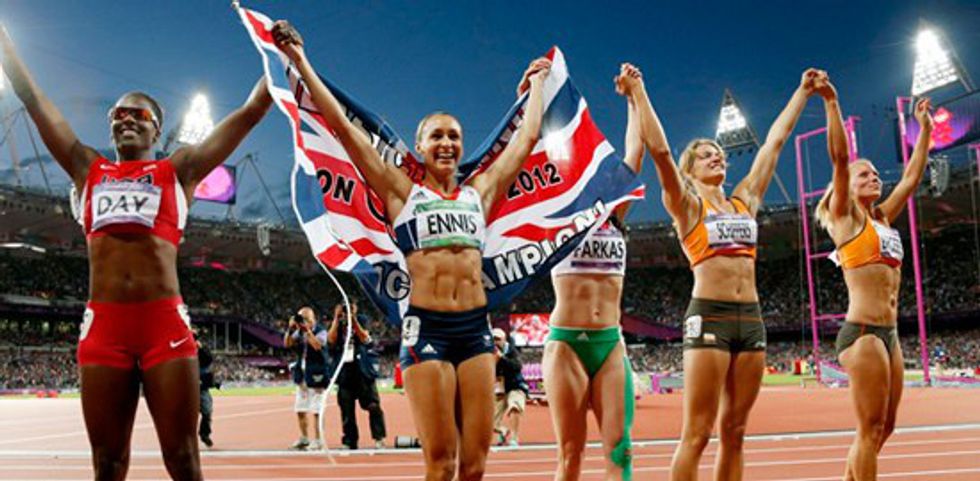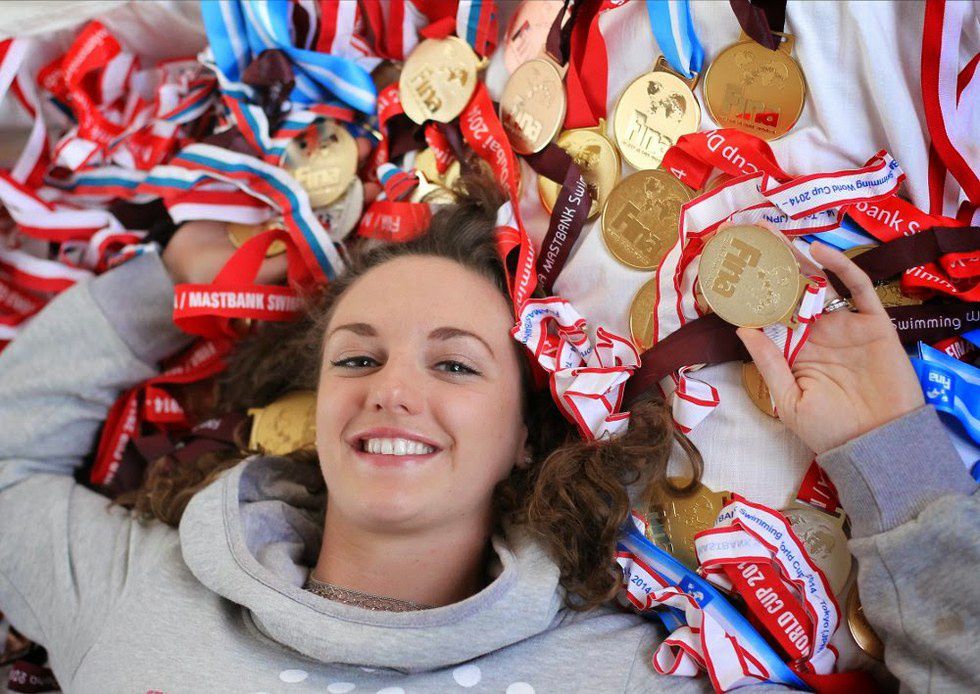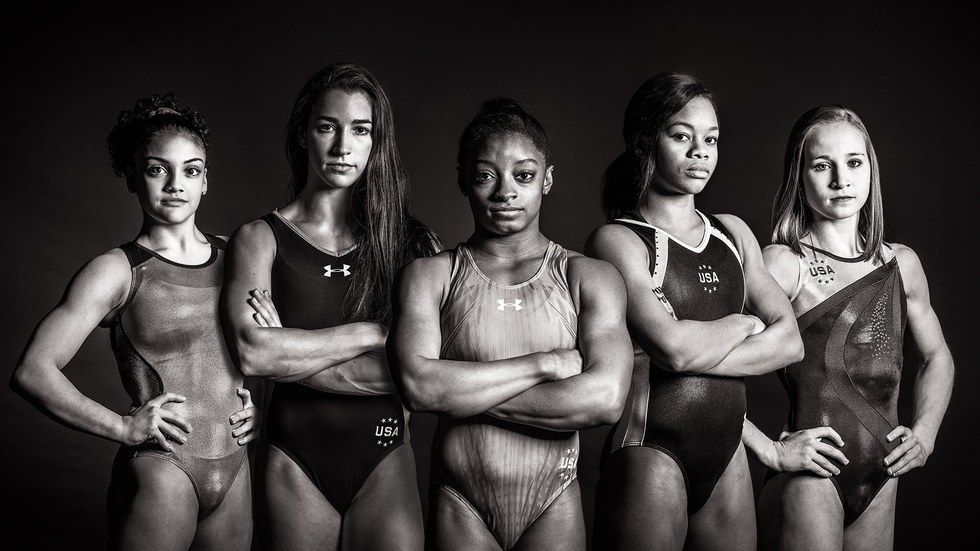It's finally August and the 2016 Olympics have officially started in Rio, Brazil. So far, we have seen men's and women's swimming events, a French gymnast's broken leg, ping pong, and beach volleyball. Currently, the United States is leading the pack with twelve total medals won, but Austria and Hungary are tied for the most gold medals won. All of these facts are easy to find just by Googling "2016 Olympics." The search results change however when you look up women's sports. Instead of highlighting the extreme athleticism and giving these women the recognition they deserve, the top articles normally focus on something else. This lack of recognition cheapens women athletes and writes them off.
I looked in to media coverage of the Olympics after a discussion with my roommate. She had been following the success of Katinka Hosszu, a Hungarian swimmer, when she noticed that NBC commentators were giving Katinka's husband credit for her prolific swimming record. Hosszu's husband is also her swim coach, and is gaining recognition for turning his wife in to the great athlete she is. This woman broke the world record for 400 meter individual medley, and the announcers found it appropriate to comment not on her fantastic performance, but on her husband's influence in her performance. I watched the race in question, and let me tell you, Shane Hosszu was never in the pool. He didn't swim a lap and shouldn't be taking credit for Katinka's success. His coaching ability shouldn't outshine Katinka's phenomenal performance just because he is a man.
After looking at the medias misrepresentation of Hosszu, I looked for articles about different sports to see if there was a difference in how men and women were portrayed across the board. When I looked up "women's soccer 2016 Olympics," the first article that popped up was about women soccer players facing homophobic slurs during games. When I did the same for men's soccer, this article popped up with nothing but facts about the outcome of the Germany vs. South Korea game. Coverage of women's soccer focused on sexuality, while coverage of men's soccer was just that - coverage. Top articles that reported on gymnastics were both about the USA qualifying rounds for men and women, but the women were described as having "a fairytale day," while the men simply "ranked 2nd behind China." Okay really, the women kicked ass on their own, they weren't saved by some fairy godmother with a pumpkin carriage. They don't live in a fairytale.
Reporting for women's sports shouldn't be fluffy and gendered, it should be factual and telling of the hard work and extreme athleticism of these competitors. When the media gives a man credit for a woman's success or focuses on her sexuality instead of her skills, it counts her out, instead of giving her credit for the athlete she is. It gives her yet another hoop to jump through before she can be taken seriously like her male peers are. Quite frankly, it misrepresents her by olympic proportions.






















